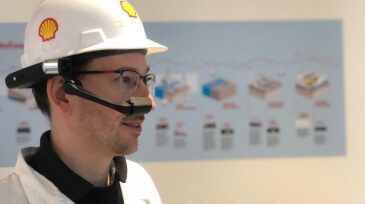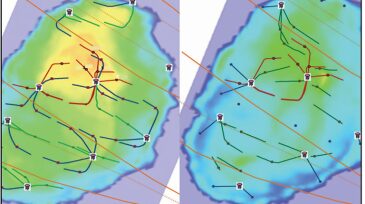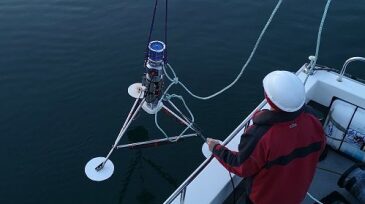Digital oilfield
Weatherford International plc announced a strategic agreement with Amazon Web Services (AWS) to advance the company's digital transformation and drive innovation across the energy sector.
This paper describes the operator’s digital-twin end-to-end production system deployed for model-based surveillance and optimization.
The authors of this paper describe a project to develop a virtual sensor to monitor the cooling effect downstream of a subsea choke to avoid hydrate plugs during cold-start operations.
-
The authors of this paper propose a novel work flow for the problem of building intelligent data analytics in heavy-oil fields.
-
This digital deal is helping to make augmented reality a new reality for oil and gas operations.
-
The operator piloted a new well-completion design combining inflow-control valves (ICVs) in the shallow reservoir and inflow-control devices (ICDs) in the deeper reservoir, both deployed in a water-injector well for the first time in the company’s experience.
-
The two technology startups aim to bring scale to the visual side of oilfield automation with a new deal that will cover 90% of US energy assets.
-
The company plans an innovative application of oceanographic instrumentation to maximize recovery at its Johan Sverdrup oil field in the North Sea.
-
The need to understand the future trends of the oil industry has never been greater than it is today.
-
In this study, the authors investigated a fully data-driven approach using artificial neural networks (ANNs) for real-time virtual flowmetering and back-allocation in production wells.
-
The authors detail the development of a technique based on surface-to-borehole controlled-source electromagnetics (CSEM), which exploits the large contrast in resistivity between injected water and oil to derive 3D resistivity distributions, proportional to saturations, in the reservoir.
-
In this paper, the authors describe a project to design, field trial, and qualify an alternative solution for real-time monitoring of the oil rim in carbonate reservoirs that overcomes these disadvantages.
-
This industry is one often considered reactive and overly tradition-bound. These new technologies, however—and, more importantly, the drive of these researchers to harness their capabilities—prove that petroleum engineers remain at the forefront of innovation and discovery.













